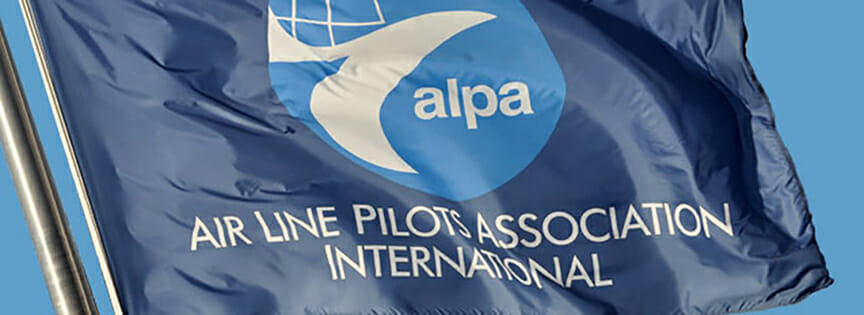
Fourteen years after the tragic flight 3407 crash in Clarence Center, NY, ALPA president, Capt. Jason Ambrosi penned an opinion piece for the Buffalo News honoring the lives lost, and recognizing the impact of the advocacy of the Families of Flight 3407 in improving aviation safety.
KEY POINT: “We cannot put profit over the safety that millions of Americans trust their lives to every day, by rolling back the safety standards enacted after Flight 3407. The system is working. Weakening safety standards threatens to undo the extraordinary safety gains we have achieved since 2010. ALPA is proud to stand with the Flight 3407 families and in their honor, will continue to defend against any efforts to erode these standards and fight to protect the safety of our air transportation system.”
Capt. Ambrosi joined the Families of Flight 3407 in Clarence Center on the weekend of the 14th anniversary of the crash to honor the lives lost in that tragedy.
Read the full piece below:
Another Voice: Safety, Not Profits, Should Direct Airline Regulations
By Capt. Jason Ambrosi
Fourteen years ago, the lives of 50 people were tragically cut short when Flight 3407 crashed in Clarence Center. This tragic accident marked a turning point in American aviation thanks to the dedicated advocacy of the families of those who lost their lives.
The commitment to honoring their loved ones through advocating to make flying safer has prevented countless tragedies and all but eliminated fatal airliner crashes in the United States in the decade since. However, efforts to undo this hard work by decreasing safety standards to increase profits are on the rise as Congress begins reauthorizing the Federal Aviation Administration.
Responding to tireless advocacy by the families and other aviation safety stakeholders – including the Air Line Pilots Association, International – Congress passed the Airline Safety and FAA Extension Act of 2010, increasing the requirements for pilot training and experience before entering the flight deck.
These new regulations revolutionized pilot training, allowing regional carriers to increase the piloting skill of new hires, creating the same level of safety across all regularly scheduled airlines. The new law directed the implementation of Safety Management Systems at the airlines, ensured most U.S. commercial passenger pilots have science-based rules to protect against fatigue, and increased training for adverse weather and stall prevention and recovery.
As a pilot, I benefit from the enhanced training and see the improvements during emergencies and routine flights of having a higher qualified first officer on the flight deck with me.
To ensure safety on every flight, pilots must be ready to react to the unexpected. Weather, medical emergencies or mechanical malfunctions can turn a routine flight into an emergency. Pilots depend on the training and experience mandated by the Airline Safety and FAA Extension Act to safely manage the unexpected. Since the rules passed, passenger fatalities on Part 121 airlines have decreased by 99.8%. Experienced pilots on the flight deck save lives.
In recent years, some have been attempting to rewrite the regulations that keep us safe in the sky. These groups are pushing to decrease the number of pilots on the flight deck and decrease training and experience requirements – even calling to remove the minimum experience requirements enacted following the crash of Flight 3407 – just to pad profits at the expense of safety.
We cannot put profit over the safety that millions of Americans trust their lives to every day, by rolling back the safety standards enacted after Flight 3407.
The system is working. Weakening safety standards threatens to undo the extraordinary safety gains we have achieved since 2010. ALPA is proud to stand with the Flight 3407 families and in their honor will continue to defend against any efforts to erode these standards and fight to protect the safety of our air transportation system.
Capt. Jason Ambrosi is a Boeing 767 captain, and President of the Air Line Pilots Association, Int’l, which represents more than 67,000 pilots who fly for 39 airlines in the United States and Canada.

























































































































